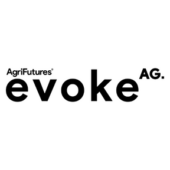Three WA innovators harnessing the potential of seaweed
In a world grappling with environmental concerns and ambitious carbon reduction targets, increasingly innovation has become the linchpin to address global challenges. The urgency to combat climate change and meet evolving market, consumer, and regulatory demands, continues to grow, requiring innovation that drives productivity while mitigating environmental harm. And seaweed has now become a key agent of change.
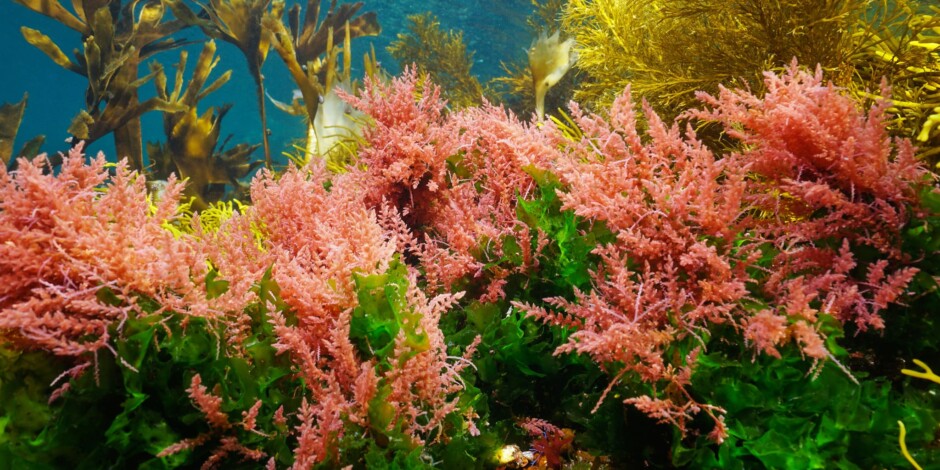
As AgriFutures evokeAG. heads west in 2024, we take a look at three Western Australian companies using seaweed, or a pharmaceutically derived version of it, to address complex global challenges. From reducing livestock emissions to combating plastic pollution, these companies are paving the way for a cleaner and more sustainable future.
Rumin8: Revolutionising livestock sustainability
Western Australian startup, Rumin8, is pioneering a transformative solution to one of the most pressing environmental challenges: reducing livestock methane emissions in the global fight against climate change.
Methane from livestock accounts for 3.7% of human caused greenhouse gas emissions, a number that is expected to increase alongside our growing population and appetite for meat and dairy products. The compound tribromomethane, found in red seaweed, presents an opportunity to reduce these emissions. However, cultivation of ocean-based seaweed can be a costly and complex process.
How a pill could cut methane emissions from cow burps by 90 per cent, ABC Landline featuring David Messina, Co-Founder and CEO, Rumin8
To help remove these barriers, Rumin8 have developed an innovative and scalable approach to commercialise a dietary supplement that reduces methane emissions in livestock and offers carbon credit opportunities for farmers. Rather than mass producing the plant itself, Rumin8’s patented pharmaceutical technology stabilises and replicates the natural anti-methanogenic compound (tribromomethane) found in red seaweed (asparagopsis) — enabling the production of scalable and efficient feed supplements for livestock.
Trials to date have demonstrated up to 85% methane reduction in cattle, which would effectively remove two tonnes of carbon emissions per cow per year.
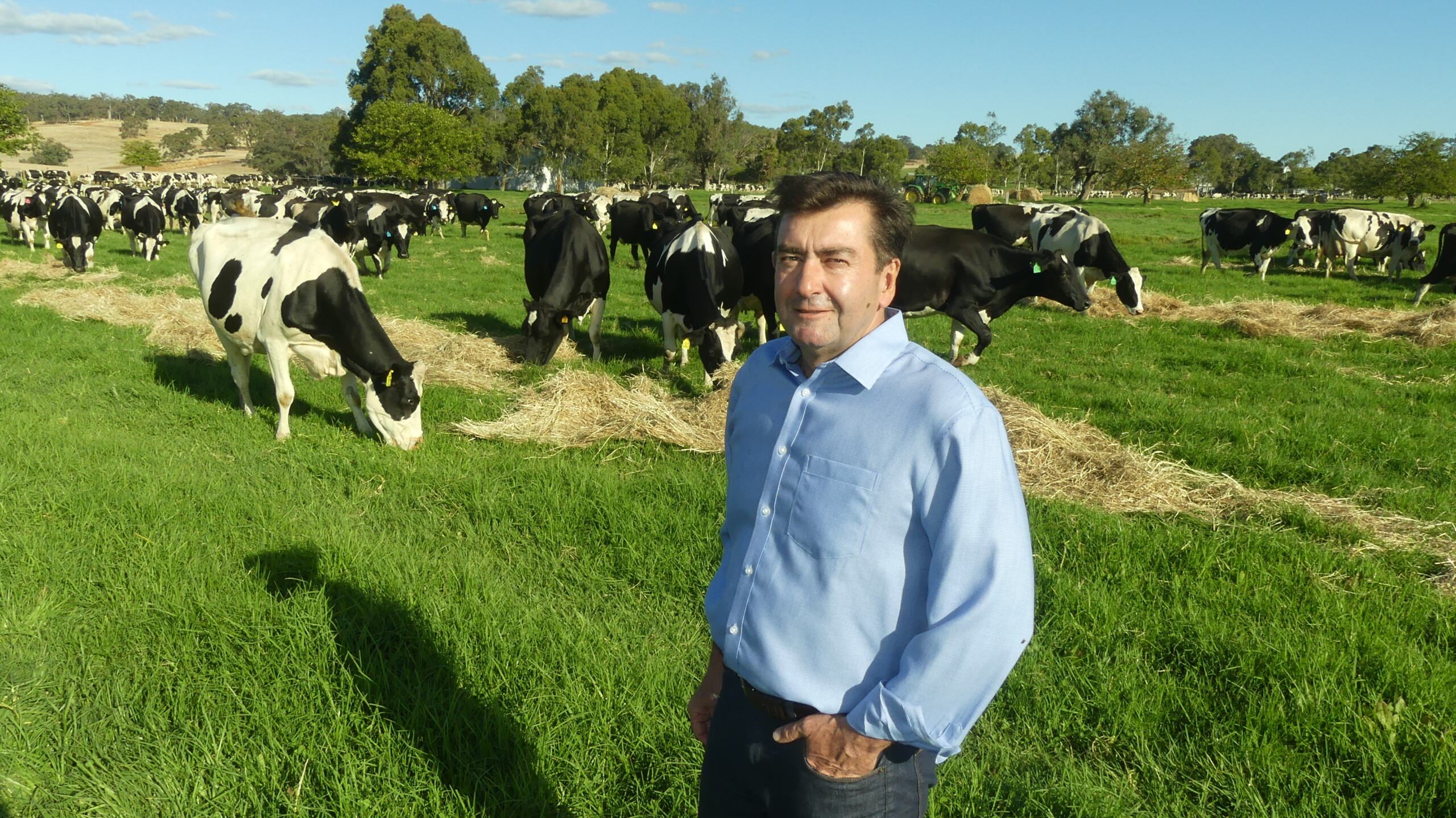
Rumin8 Founder and CEO, David Messina, will join a panel discussion at evokeAG. on 20-21 February 2024 to explore ‘Leaders and laggards: Pathways to a more sustainable agrifood landscape’.
Not only does the technology reduce methane emissions, the reduction in emissions allows livestock to convert lost energy into increased productivity, driving economic gains for farmers while reducing the livestock sector’s contribution to global greenhouse gas emissions.
Replication of the bioactive compound in asparagopsis seaweed opens doors to a scalable solution that can revolutionise the industry.
Rumin8’s work has found the support from high-profile investors, with its seed funding round led by Bill Gates-founded Breakthrough Energy Ventures (BEV) with participation from evokeAG. 2024 Partner, Harvest Road Group.
SeaStock: Unearthing Sustainable Seaweed Solutions
Bio-tech startup, SeaStock, is on a mission to unearth sustainable solutions for the agriculture sector and beyond. Using seaweed, SeaStock aims to create global marine science solutions and offer sustainable raw materials to various industries.
With a primary focus on combatting methane emissions from ruminant livestock, SeaStock harvests and leverages advanced processing technology of asparagopsis seaweed to produce asparagopsis based methane reducing feed supplements.
View this post on Instagram
Developed to help meet emissions reduction targets, SeaStock’s innovative approach addresses the significant environmental challenge of livestock methane emissions. While the production of feed supplements remains core business for SeaStock, it continues to look outside the box for innovative solutions with significant environmental and social benefits, from the production and extraction of compounds derived from seaweed and algae.Working alongside a research team at Flinders University, SeaStock is collaborating with industries and businesses across agriculture, cosmetics and pharmaceutical industries that have a need for sustainably sourced, naturally derived raw materials.
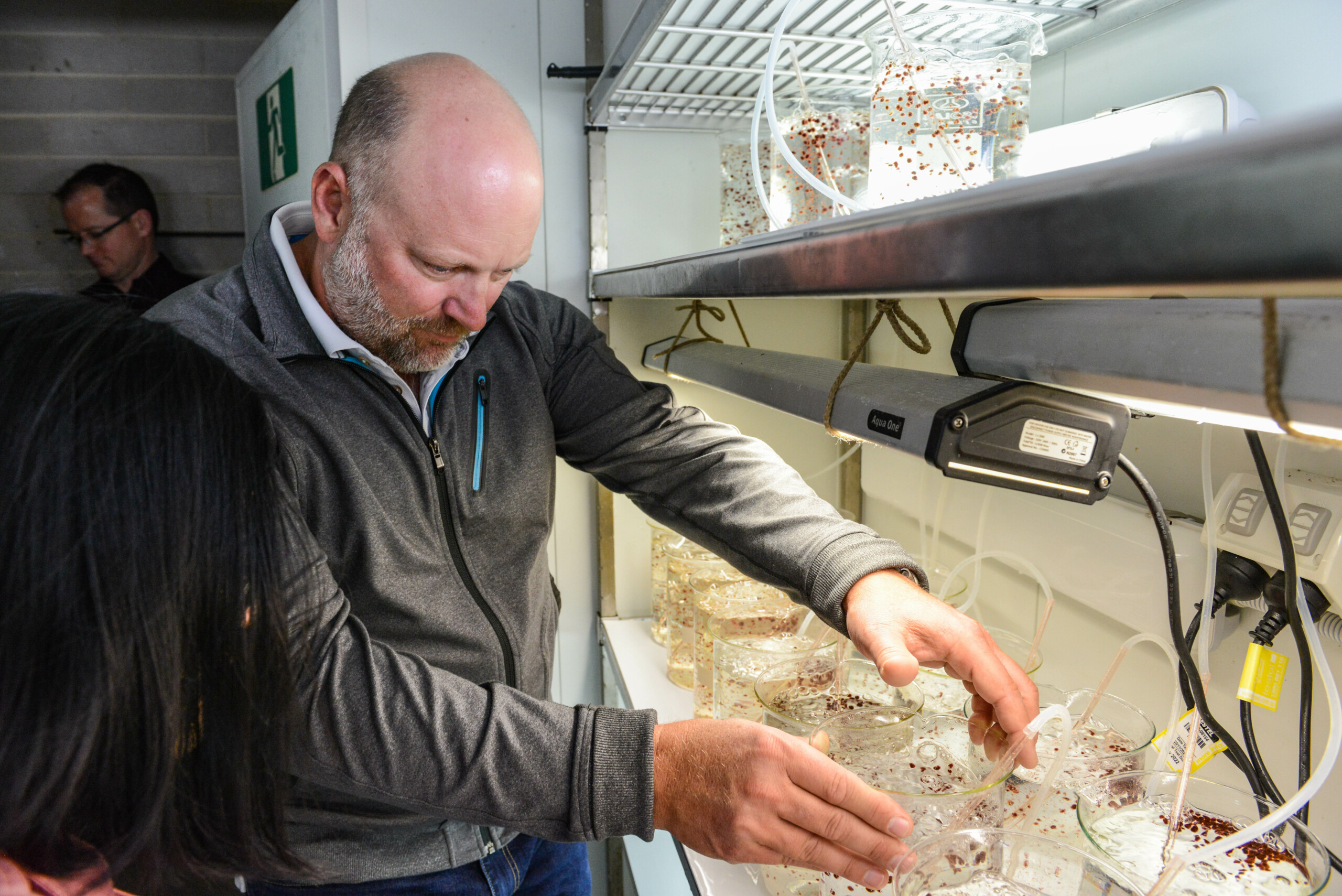
SeaStock team in the lab examining asparagopsis
Looking ahead, the business aims to lead the development of techniques for producing and extracting seaweed and algae-based compounds for commercial applications.
Uluu: Pioneering sustainable materials for a cleaner world
Uluu is taking a different path altogether, seeking to revolutionise the materials industry by replacing plastic with eco-friendly alternatives that benefit both business and the environment.
Its innovative approach focuses on materials that decouple the polymers market from fossil fuels and persistent pollution while offsetting more carbon emissions than they produce. And seaweed is its secret weapon, providing a sustainable source for its materials.
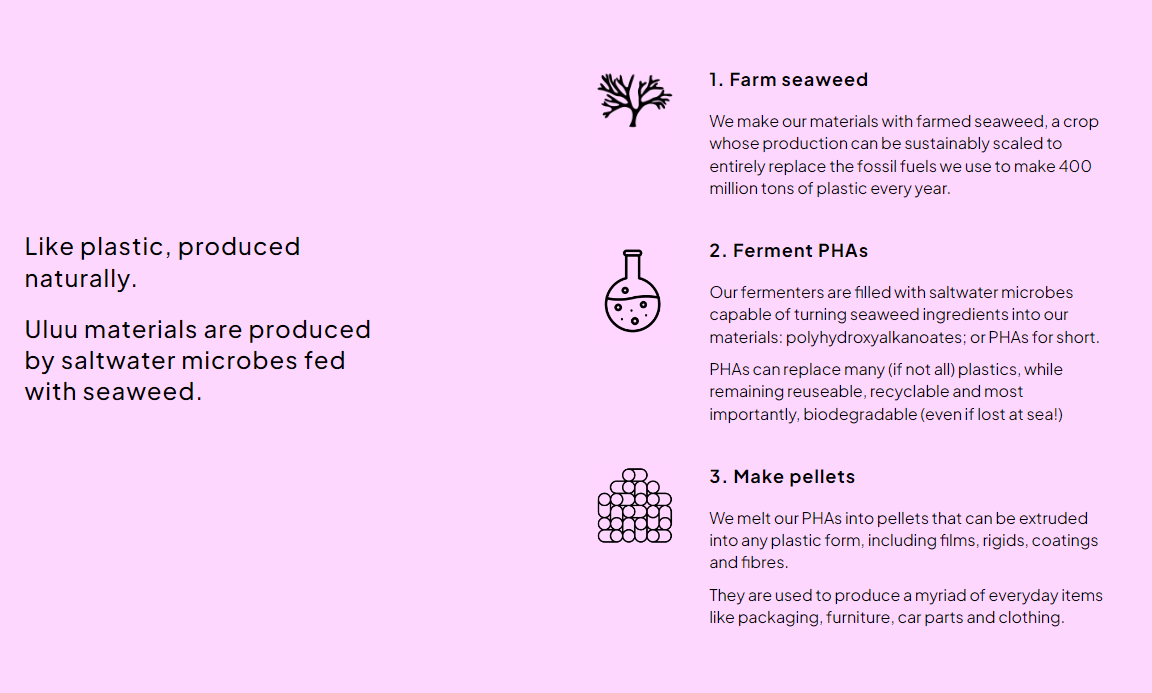
Uluu’s process creating a plastic alternative using seaweed. Source: uluu.com.au/
By farming seaweed, Uluu aims to replace the 400 million tonnes of plastic produced annually from fossil fuels. Its unique production process involves using saltwater microbes to ferment seaweed into polyhydroxyalkanoates (PHAs), versatile materials that can replace many plastics while remaining reusable, recyclable, and biodegradable.
The potential for positive social and environmental impacts is significant. Plastic pollution is a global crisis, and Uluu addresses this challenge by providing a viable and sustainable alternative, helping to reduce reliance on fossil fuels and combat global warming by sequestering carbon. These biodegradable alternatives also play an important role in protecting both the environment and marine life.
Uluu’s technology has already garnered attention from major consumer brands, industry figures and high profile investors. By partnering with these brands and focusing on carbon-negative and marine-biodegradable products, Uluu is well-positioned to lead the charge in creating a cleaner, more sustainable future through its seaweed-based materials.
As we teeter on the edge of major global challenges, do you want to learn more about how WA’s exceptional agrifood tech companies are tackling these problems head on? From feeding the world, to climate, resource management and beyond, evokeAG. 2024 will explore the exceptional edge of agrifood tech innovation and the role it will play in addressing these challenges.
Hear more about the opportunity for innovation in agrifood at evokeAG. 2024 in Perth, Western Australia on the 20-21 February. Tickets are now on sale.
